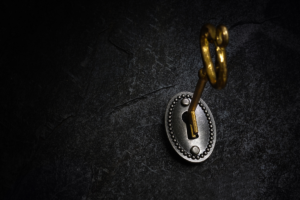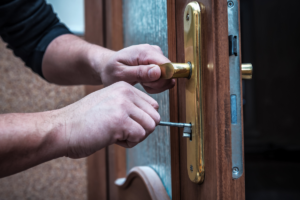Locksmiths are often the unsung heroes when it comes to security, ensuring that homes, businesses, and personal belongings remain protected. While most people only think of locksmiths in emergencies—like being locked out of a house or car—these professionals possess a wealth of knowledge that goes far beyond unlocking doors. Their expertise can help prevent break-ins, improve the longevity of locks, and even enhance the overall safety of your property.
Many homeowners and business owners are unaware of the subtle techniques and strategies locksmiths use to boost security. From choosing the right type of lock to knowing when to rekey instead of replace, these trade secrets can save time, money, and unnecessary stress. In this article, we’ll delve into the top 10 secrets that experienced locksmiths rely on, giving you the inside information you need to keep your property secure.
By understanding these key principles, you’ll be better equipped to make informed decisions about your home’s or business’s security, avoid common mistakes, and ultimately gain peace of mind knowing that you’re using the same strategies trusted by professionals. Let’s begin by unlocking the valuable insights that only seasoned locksmiths know.
1. Choosing the Right Lock for Maximum Security
Selecting the best lock for your property is one of the most critical steps in securing your home or business. Not all locks are created equal, and understanding the different types can help you make a more informed decision. Deadbolt locks, for example, are a staple of residential security because of their robustness. When combined with high-security cylinders, they provide resistance to picking, drilling, and bumping.
For commercial properties, heavy-duty locks such as mortise locks or keypad systems are often recommended. These offer additional layers of security through mechanical strength or electronic access control. Always consider the security grade of a lock—Grade 1 locks offer the highest level of protection according to the American National Standards Institute (ANSI). By consulting a locksmith, you can ensure that your lock choice fits both your security needs and budget.
2. The Importance of Regular Lock Maintenance
Like any mechanical device, locks require regular maintenance to function properly over time. Dirt, debris, and regular use can cause wear and tear, making locks more vulnerable to malfunction or break-ins. Locksmiths recommend lubricating locks annually with a graphite-based solution to ensure the internal mechanisms stay in good working condition.
In addition, check for signs of rust, stiffness, or difficulty in turning the key—these are early indicators that your lock may be nearing the end of its lifespan. By performing routine maintenance, you not only extend the life of your locks but also reduce the risk of them failing at critical moments.
3. When to Rekey Instead of Replacing Locks
Many people assume that a damaged or outdated lock needs to be completely replaced, but locksmiths often recommend rekeying as a more cost-effective solution. Rekeying involves altering the internal mechanism of the lock so that it works with a new key, rendering old keys useless.
This is an ideal option if you’ve moved into a new home, lost a key, or want to limit access to certain individuals. It’s faster and more affordable than changing the entire lock system, and it ensures that you remain in control of who has access to your property.
4. How to Secure Sliding Doors and Windows
Sliding doors and windows are notorious weak points in home security. Many burglars target them because they can often be forced open with relative ease. However, there are effective ways to secure these areas. One simple but highly effective solution is to install a bar or rod in the track of sliding doors. This prevents the door from being opened, even if the lock is compromised.
In addition, reinforcing the locks on sliding windows with auxiliary locks or keyed window locks can add an extra layer of protection. Security film can also be applied to the glass to make it more difficult to shatter, deterring would-be intruders.
5. The Best Ways to Protect Your Home from Lock Bumping
Lock bumping is a technique used by criminals to quickly and easily open pin-tumbler locks with a specially designed “bump key.” Since this method leaves no visible damage, it can go undetected until it’s too late. To protect your home from lock bumping, locksmiths recommend investing in high-security locks that are resistant to this technique.
Locks with sidebar pins or those featuring keyless entry systems can make it significantly harder for burglars to use bumping methods. Alternatively, installing bump-proof deadbolts adds another level of security to your existing locks.
6. How to Avoid Common Mistakes When Locking Yourself Out
Locking yourself out is one of the most frustrating situations to be in, but it happens more often than you might think. To avoid getting locked out, always have a spare key accessible in a safe place—not under the doormat or in a fake rock, as these are the first places intruders will check.
Instead, consider giving a spare key to a trusted neighbor or friend, or use a combination lockbox that can be discreetly installed on your property. Additionally, keyless entry systems eliminate the need for traditional keys, reducing the risk of accidental lockouts.
7. The Role of Smart Locks: Are They Really More Secure?
Smart locks have grown in popularity for their convenience, allowing homeowners to control access remotely or through keypads. But are they truly more secure than traditional locks? The answer depends on the system you choose and how it’s integrated into your overall security plan.
Smart locks offer the advantage of monitoring who enters and exits your home, and many models allow you to set temporary access codes for guests or service workers. However, like any digital device, they are vulnerable to hacking or technical failures. Locksmiths recommend combining smart locks with physical deadbolts for enhanced security, ensuring that even if the digital system fails, the mechanical lock provides backup protection.
8. What to Do in Case of a Broken Key Inside a Lock
A broken key stuck inside a lock can seem like a catastrophe, but locksmiths handle this issue regularly and have efficient ways to resolve it. First, try using needle-nose pliers or a broken key extractor tool to remove the key. If the broken piece is too far inside, resist the temptation to push it further or use excessive force, as this can damage the lock.
In most cases, calling a locksmith is the safest option. They can remove the broken key without harming the lock, and if necessary, rekey or replace the lock afterward to ensure continued security.
9. How to Properly Secure Your Garage and Outdoor Spaces
Garages and outdoor spaces are often overlooked when it comes to security, but they can be easy entry points for intruders. Locksmiths recommend installing heavy-duty locks on garage doors and using padlocks on any side or back doors. If your garage has windows, consider adding security film or bars to prevent unauthorized access.
For outdoor spaces, such as sheds or gates, make sure all locks are weather-resistant and robust. Chain locks or combination locks can secure gates, and motion-sensor lighting adds another layer of deterrence, making it harder for criminals to operate unnoticed.
10. Understanding Master Key Systems for Added Convenience
Master key systems are popular in multi-tenant buildings or businesses that require different levels of access. They allow one key to open several locks, while individual keys still only open specific doors. This provides both security and convenience, as it reduces the need for carrying multiple keys.
For homes with multiple locks or for business owners managing several properties, a master key system can streamline access control. However, it’s essential to have a locksmith design the system to ensure that security is not compromised by poorly implemented master key setups.
Ensuring Security Through Locksmith Expertise
Locksmiths offer far more than emergency lockout services—they are key players in enhancing the security of homes and businesses. By understanding their trade secrets, you can take proactive steps to secure your property with the same level of precision and care used by professionals. Whether it’s choosing the right lock, maintaining it properly, or knowing when to rekey instead of replace, these insights can significantly boost your safety.
Incorporating practical advice from locksmiths, such as securing sliding doors, safeguarding against lock bumping, and using smart locks effectively, helps to mitigate risks that homeowners and business owners may overlook. Additionally, understanding specialized systems like master keys and addressing common issues like broken keys ensures that you are always prepared, no matter the situation.
Ultimately, leveraging the expertise of locksmiths empowers you to make informed decisions about your property’s security, creating peace of mind. Whether you opt for traditional or smart locking systems, keeping your locks well-maintained and understanding best practices will go a long way in protecting what matters most. Remember, a well-secured property isn’t just about locks—it’s about staying ahead with knowledge and the right strategies.

I’m Marcel Brandt, a locksmith with over 15 years of experience. I specialize in modern security solutions and love sharing tips to help fellow locksmiths succeed in their careers.




